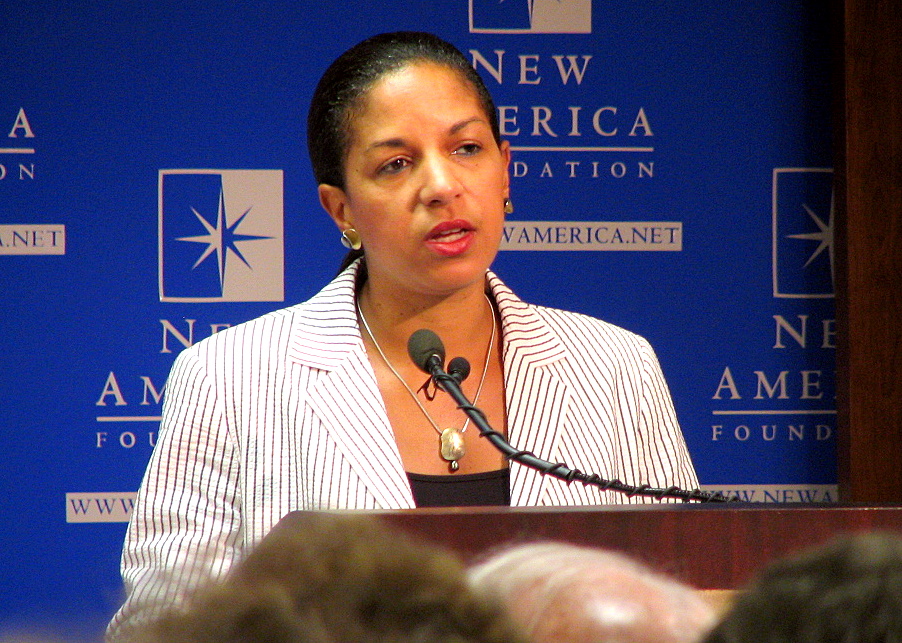Appointing Susan Rice to lead the Domestic Policy Council in December made no sense from a policy perspective, but perfect sense from a political perspective. The DPC is one of three “group huddle” councils where Cabinet Secretaries and other officials coordinate executive branch policy on a given suite of topics — in the DPC’s case, on all domestic issues that aren’t explicitly economic in nature (think immigration and education, but not labor and finance). The DPC has no jurisdiction whatsoever over foreign policy, which has been the focus of Rice’s career up to this point.
The reason was obvious: Since the Benghazi terrorist attack tempered her hopes of becoming Barack Obama’s Secretary of State in 2012, the Biden transition feared a similar embarrassment putting Rice up for a Senate-confirmed job. Unfortunately, they’d already reserved the National Security Advisor role for Jake Sullivan. Thus, Biden plopped Rice in charge of a committee whose issues she’d never worked on in her life.
But even that, it seems, may cause controversy, given her enormous conflict of interest on the most existential issue on which DPC works.
ABC News reported on Sunday that Susan Rice’s public financial disclosure documents reveal multimillion-dollar holdings in several oil and gas firms, including $1 to $5 million in the Canadian gas distributor Enbridge Inc. This likely helped her to become one of the wealthiest members of the Biden administration, nearly tripling her net worth since 2009 for a reported $36 to $149 million in various assets, again according to ABC News.
This is nothing new for Rice. In 2012, she also owned stock in the Canadian firm behind the Keystone XL pipeline, just one part of the roughly one-third of her wealth tied up in Canadian oil and gas companies at the time. Rice’s husband is Ian Cameron, heir to a Canadian lumber firm called the Victoria Plywood Company. In 2012, she and Cameron jointly owned at least $1.5 million worth of stock in Enbridge, meaning Rice has at least maintained and at worst doubled down on her fossil fuel investments as the climate crisis has grown more dire in the last decade.
Having a pollution investor in charge of the DPC should set off alarm bells for anyone worried about climate change — in other words, everyone. While Biden’s newly-established National Climate Task Force appears to be the main coordinating venue for whole-of-government climate policy, Rice sits on that council, and its work will inevitably involve several sub-issues within DPC’s domain. After all, the Keystone XL pipeline protests centered on abuse of Native American tribal rights, which is a DPC issue. A January 26th executive order explicitly placed Rice and the to-be-named Office of Management and Budget director in charge of overseeing and coordinating each agency’s official who interfaces with Tribal governments.
The DPC will also likely play a role in permits and land seizure for any new pipelines, such as Enbridge’s PennEast Pipeline Project, which will build a new natural gas line connecting Pennsylvania and New Jersey. The Biden Administration argued in support of that pipeline last week. Enbridge is also proposing a new natural gas line in Greater Philadelphia, and is replacing 1,097 miles of crude oil pipeline across Minnesota. Over 130 people have been arrested in just the last few months protesting that project, known as Enbridge Line 3, according to tribal attorney and activist Tara Houska.
We should hope that Rice hasn’t and will not involve herself in any of these or other Enbridge projects, but for the Domestic Policy Council director to meaningfully extricate herself from domestic pipeline policy will require sacrificing a huge component of the job. Again, one wonders if it might have been easier to just not appoint a conflicted, underqualified individual to such a key post in the first place.
EDITOR’S NOTE: This article’s headline has been updated to clarify the Domestic Policy Council’s role overseeing other agencies’ work on tribal relations.
PHOTO: “Susan Rice (2774605561)” by New America is licensed under CC BY 2.0.

